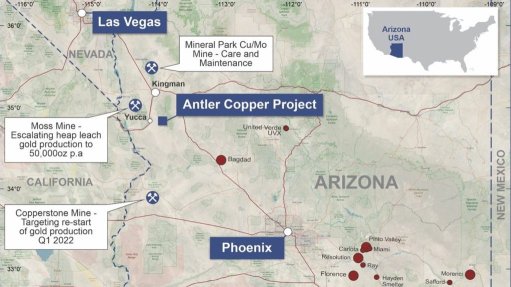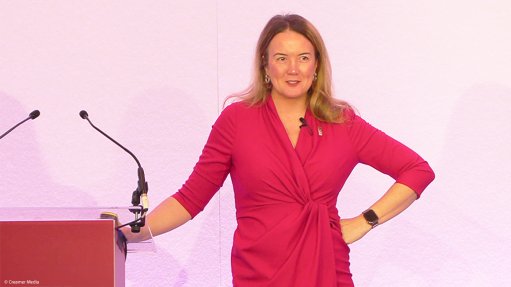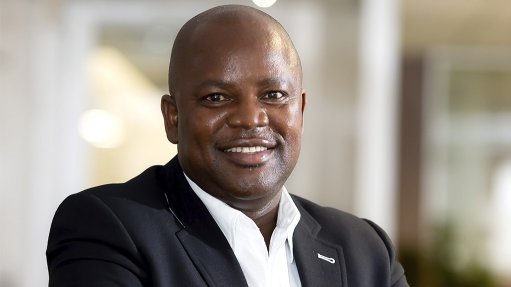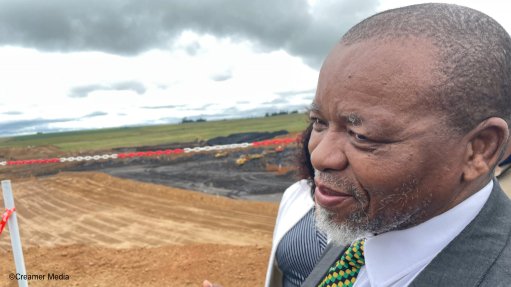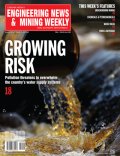Mining for coal still has a place in the power mix
Wayne Lindecke, Director: Power Generation, WSP in Africa
During the recent Investing in African Mining Indaba, concerns were noted on the impact that the move towards a ‘greener economy’ would have on coal mining – and, for base-load power production. However, coal mining and power production will remain two key industrial activities in the local economy.
An optimal energy mix – for any country - relies on a variety of generation technologies. In South Africa there is certainly a drive towards alternative and ‘greener’ sources, like gas or renewables, which all form part of the country’s Integrated Resource Plan (IRP) – and are in line with the country’s carbon reduction target commitments.
That being said, South Africa - with its vast coal resources and large fleet of power stations – is still setting the benchmark on the continent in terms of coal-fired power generation. Where there is perhaps more pressure on adopting interventions and new approaches to ensure that coal can be mined and combusted for power generation in the most eco-efficient way possible.
Shifting the balance in state vs. investor priorities
As much of the developed world has or is in the process of moving away from coal base-load power, this has made it more challenging to secure financing for such projects. However, there is significant investor and developer interest in the country’s alternative and renewable power plans and projects.
The focus therefore should be on continuing to open opportunities for investment and development through the Renewable Energy Independent Power Producer programme (REIPPP) and gas-to-power programme, where the state’s available funds for power re-investment may be focused on maintaining and re-investing in cleaner coal base-load power infrastructure, for example.
Innovating to support more sustainable coal base-load power
While there are several simultaneous conversations around the REIPPP, the gas-to-power programme, coal base-load IPP programme – even the future of the proposed nuclear programme – amongst this mix the importance of the coal base-load power programme should not be underrated.
The fact is that even with the new builds of Medupi and Kusile, there is still a need to replace the aging fleet of existing coal-fired power plants that were built in South Africa in the 1980s. With this in mind and based on our experience, meeting the onerous environmental demands on these plants promises to add the most value to South Africa’s coal generation aspirations.
For example, Medupi and Kusile feature super-critical boilers and turbines that improve their efficiencies and use of coal and scares water resources. Meanwhile, flue-gas desulphurisation technology, which will be retro-fitted on all six of Medupi’s generation units, will significantly reduce their sulphur-dioxide emissions.
Additionally, ongoing research into cleaner technologies – including, coal-gasification, carbon sequestration and storage and fluidised-bed technology – all point to cleaner coal solutions for South Africa’s future; which is in keeping with the country’s carbon emission reduction target commitments.
As demand for power rises the South African government, like its counterparts in developed and emerging economies, is faced with the trilemma of providing affordable, decarbonised and secure electricity. Coal will therefore undoubtedly remain part of the country’s base-load generation plans for the foreseeable future.
But, we can adapt the way we mine, produce and process it – towards reducing carbon emissions and to transition to more futureproofed and sustainable energy schemes.
Comments
Press Office
Announcements
What's On
Subscribe to improve your user experience...
Option 1 (equivalent of R125 a month):
Receive a weekly copy of Creamer Media's Engineering News & Mining Weekly magazine
(print copy for those in South Africa and e-magazine for those outside of South Africa)
Receive daily email newsletters
Access to full search results
Access archive of magazine back copies
Access to Projects in Progress
Access to ONE Research Report of your choice in PDF format
Option 2 (equivalent of R375 a month):
All benefits from Option 1
PLUS
Access to Creamer Media's Research Channel Africa for ALL Research Reports, in PDF format, on various industrial and mining sectors
including Electricity; Water; Energy Transition; Hydrogen; Roads, Rail and Ports; Coal; Gold; Platinum; Battery Metals; etc.
Already a subscriber?
Forgotten your password?
Receive weekly copy of Creamer Media's Engineering News & Mining Weekly magazine (print copy for those in South Africa and e-magazine for those outside of South Africa)
➕
Recieve daily email newsletters
➕
Access to full search results
➕
Access archive of magazine back copies
➕
Access to Projects in Progress
➕
Access to ONE Research Report of your choice in PDF format
RESEARCH CHANNEL AFRICA
R4500 (equivalent of R375 a month)
SUBSCRIBEAll benefits from Option 1
➕
Access to Creamer Media's Research Channel Africa for ALL Research Reports on various industrial and mining sectors, in PDF format, including on:
Electricity
➕
Water
➕
Energy Transition
➕
Hydrogen
➕
Roads, Rail and Ports
➕
Coal
➕
Gold
➕
Platinum
➕
Battery Metals
➕
etc.
Receive all benefits from Option 1 or Option 2 delivered to numerous people at your company
➕
Multiple User names and Passwords for simultaneous log-ins
➕
Intranet integration access to all in your organisation






